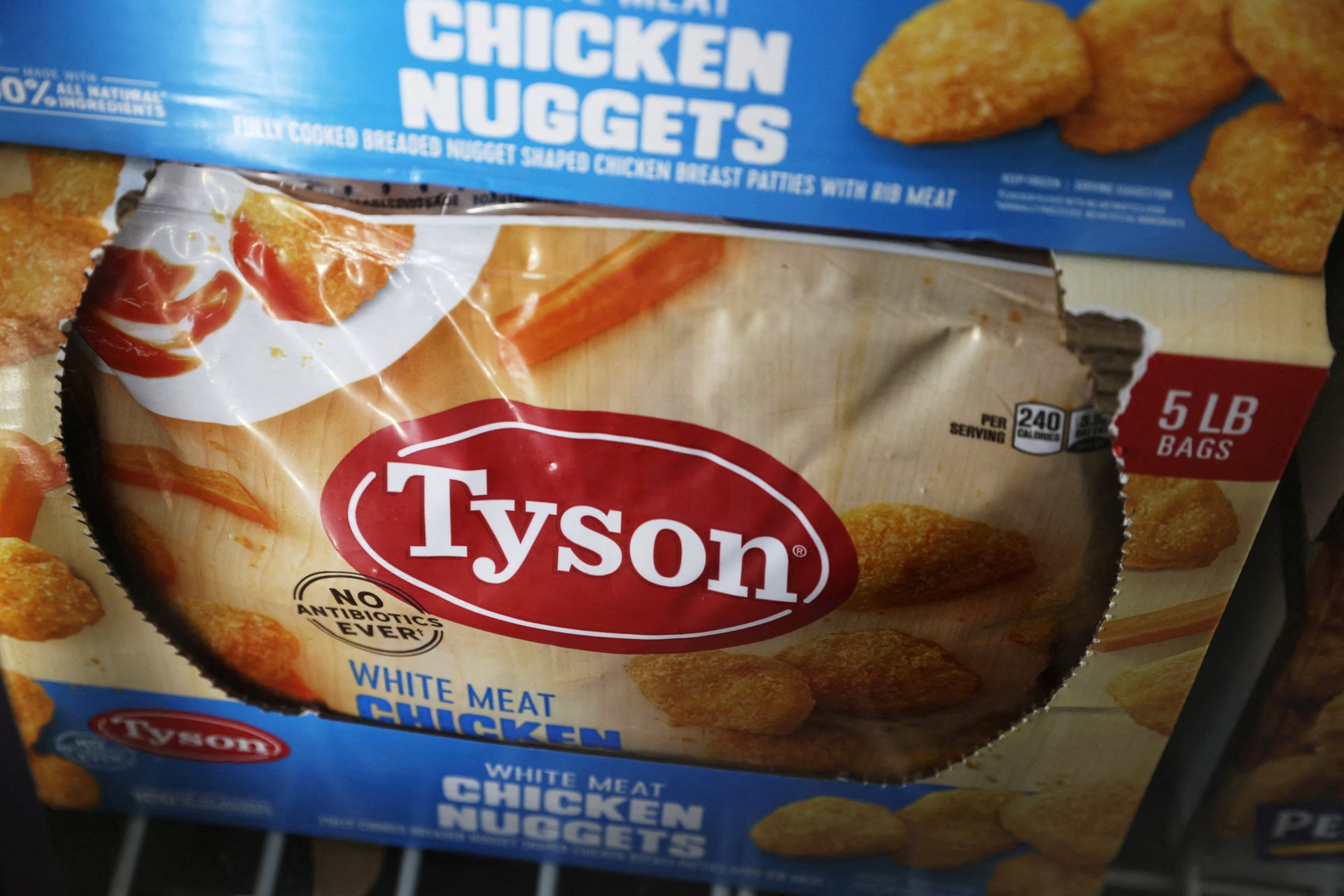Tyson Foods stock falls as inflation hits meat sales
The largest U.S. meat company said it expects sales to be relatively flat this year

Tyson Foods wants to meet consumers where they are, but stubborn inflation may continue to pose a challenge for the largest meat company in the U.S.
Suggested Reading
Shares of Tyson Foods fell by more than 7% during morning hours, trading at $57, after the company reported earnings for its second quarter.
Related Content
That decline is in part due to broader economic circumstances that are likely to impact how consumers shop this year, chief executive office Donnie D. King, told investors during the company’s earnings call on Monday, adding that the company is “not immune to the macroeconomic environment.”
“Across our brands, we are focused on meeting consumers were they are,” King said during the earnings call.
The company slightly missed Wall Street’s expectations. For the second quarter, sales slipped to $13.07 billion. FactSet analysts had forecasted Tyson would generate $13.16 billion for the quarter.
But even so, Tyson’s operating income for the quarter rose to $312 million, a steep rise from the operating loss of $49 million it reported during the same period a year ago. That turnaround was in part led by the company’s chicken segment, which elevated the company’s profit to $158 million. A year ago, it had posted a loss of $258 million.
Moreover, Tyson’s profitability boost may also tied to the closure of six of the company’s plants last year in Arkansas, Virginia, Indiana, Missouri, and Iowa, which were shut down to streamline operations.
The Arkansas-based Tyson Foods adjusted its outlook for fiscal year 2024. It said it expects operating income to be between $1.4 billion and $1.8 billion and sales to be relatively flat when compared to fiscal 2023.
“The strategies we have implemented are delivering tangible results, as evidenced by our return to year-over-year bottom line growth,” King said in the company’s earnings release.